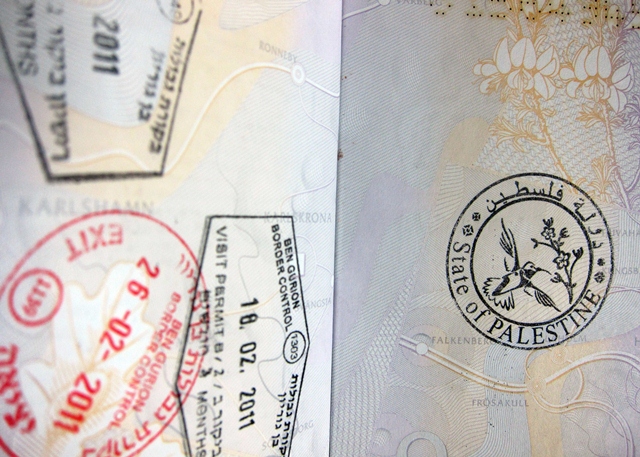Tag: Freedom of Access
-
An interview with Khaled Jarrar: Stamping Palestine into passports
by Alistair George 21 November 2011 | International Solidarity Movement, West Bank Khaled Jarrar is a Palestinian artist and photographer from Jenin, currently based in Ramallah. In addition to photographing and documenting the Israeli occupation, he has designed a ‘State of Palestine’ postage and passport stamp. This week in an interview with Alistair George of…
-
Internationals harassed and denied entry into Nabi Saleh
by Wahed Rejol 18 November 2011 | International Solidarity Movement, West Bank Following last week’s violence in the village of Nabi Saleh near Ramallah, international observers and activists were today denied entry into the village by Israeli soldiers. The soldiers said that the entire village was a closed military zone and provided paperwork that seemed…
-
Freedom Rides to Jerusalem
by Anne Paq 17 November 2011 | Chroniques de Palestine On the 15th of November, Palestinian activists from the West Bank boarded a segregated Israeli bus used by Israeli settlers to Jerusalem in an attempt to highlight the regime of discrimination on freedom of movement in place in the Occupied Palestinian Territories and the fact…

